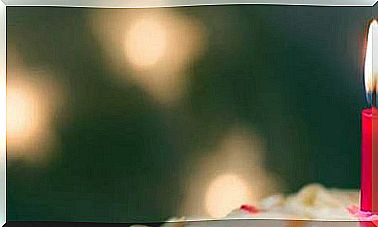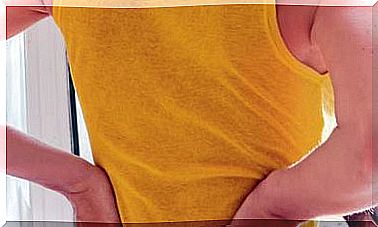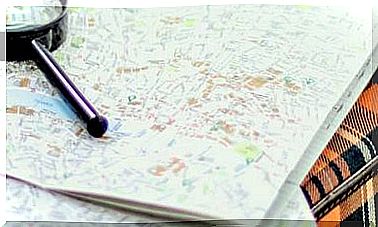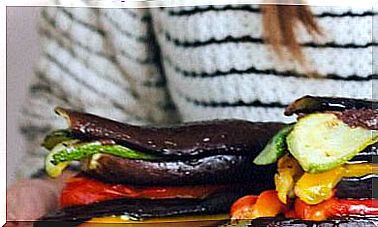How To Make Peace With Yourself, In 4 Steps
It is not about loving ourselves despite how we are, but about being in a world that would not be the same without each and every one of us. Complex and committed.

You go out on the street, any day. At the bus stop, a huge poster shows two girls walking purposefully along a huge and empty beach, with turquoise water splashing their feet. They are eternally twenty years old, with lush, shiny hair, and the bare-bones bikinis they wear show tanned bodies full of unlikely muscles and sharp bones.
The bus finally appears and, from the photo that covers its side, an elite athlete looks at you with an unusual intensity, with an unshakable self-assurance, an immovable persistence and a lopsided smile as if he already knew something that everyone others do not even imagine. Despite being eight in the morning on a winter Monday, everything about him is perfection and satisfaction.
When you get to work, most of your colleagues are on a diet to prepare for the summer. Everyone will make an exception today to celebrate, with a not too big piece of cake that they will eat feeling guilty and almost reluctantly, the birthday of one of you.
When he announces that he turns forty, all of you are quick to affirm that he does not look like it at all. The day ends and you are sitting on the sofa in your living room, exhausted and frustrated. You keep thinking about the discomfort, that constant discomfort when you look in the mirror, that rejection of your image in the photographs, that low intensity but perpetual anger with yourself and with your life.
You remember the girls on the poster: you were twenty years old only for twelve months, on the beach your hair gets frizzy, your skin never gets so brown and, if it does, it’s spotty. When you walk along the shore in a bikini that is too small or too big, your hips never do that jog in the commercials if it is not to avoid shovels, balls and jellyfish.
No one has ever looked at you with the intensity of that elite athlete. Actually, if someone did, you would be scared.
You think you should go on a diet because, indeed, summer is coming. But you’ve been eating with shame your whole life and you’ve always weighed more or less the same. Also, when you think about it calmly, your age seems fine to you. You have taken decades to reach it, why would it be wrong to pretend it?
Make it up to yourself …
Our world is full of messages that promote discomfort towards our bodies, our appearance, our daily life and our vulnerability through a papier-mâché happiness based on superficial and, furthermore, unattainable attributes.
Images of impossible lives that have nothing to do with our lives, with our environment and that, however, are inextricably linked to the word happiness
Messages that permeate us, frustrate us, and perpetually divert our attention from the really important things. We are trapped in a reflection of the world. But nobody is as ugly as in his passport photo, nor as handsome as in his profile photo …
To minimize the impact of all these teachings, we generate forms that reinforce the very idea of a happiness through and in representation, embedded in the skin and in the captureable layers of life.
Accepting oneself as a form of renunciation, reconciling oneself with some “defects” and imperfections that are still considered, nevertheless, disastrous and important, or generating a space of fictitious and cybernetic life are strategies to live with those lives and those bodies that assail us down the street, those lives and those bodies of eternal and frozen happiness, of power, firmness and confidence.
Will we be able to forgive ourselves?
And so, we try to strengthen self-esteem with the same tools of self-rejection, putting up a hesitant resistance that transforms the message but affirms its logic. We set ourselves up as our own advertising agents, and we love each other despite our imperfection or depending on how many eyes look at us, how many looks want us, to what extent we manage to conceal our concreteness, our reality.
Abandoning egocentricity
But despite these strategies, the discomfort persists … because plenitude cannot be rooted there, it doesn’t matter what metaphors we try to glue it with. The infinite noise of stimuli and counter stimuli only takes us further and further away from the deep understanding of the evil that makes us sick, which keeps us on an endless wheel pursuing a fictional ideal of life.
Spending life running after something we are not, or accepting what we are by way of defeat, as a consolation prize, are forms that have the same basis: being as the center of life.
What would happen if we changed our gaze to place it on “being” instead of “being”? Stop putting ourselves in the very center of existence, looking at ourselves, criticizing us, questioning ourselves, praising ourselves or magnifying ourselves based on who we are or what we appear to be, or to the extent that we are admired and recognized, and turn our eyes towards ourselves. place and our relationship with the world.
It doesn’t matter what our body is like, it doesn’t matter what our age is, it doesn’t matter how our clothes fit or what brand we wear.
It is not necessary to love yourself “despite” how we are. It is essential to love yourself for being in the world, as necessary to the world
Understand and discover that we are part of something much bigger than ourselves, that our social success does not really matter within a knotted environment of relationships and inequalities that need, with the greatest urgency, our presence in the real, in the collective. Become aware of the world and be in it, fully.
It is about committing ourselves to life, not only to ours, to our particular journey, but to life in capital letters
And in order to root life we have to become roots, roots. Subterranean, polymorphous and tangled, roots that germinate, that intertwine and that are in one place, in time, interwoven with the environment, interdependent with the earth and in constant movement over time. Roots of life itself.
The frustration of a world that cries out for shallowness can only be countered by digging into the surface, filling our hands with dirt, and going deep into the world. Becoming world.
Being, sharing, creating it day by day with our existence, committing ourselves to existence. Forgiving others in the same way that we forgive ourselves.
1. Broaden your gaze: all the good and the bad
Dismantle the logic of resignation. Your body is useful, each body is useful in its own way. With his concrete abilities, with his sufferings, with his shortcomings. But it is your body: everything good and everything bad in life has happened to you through it.
To dismantle the logic of resignation before real bodies is to thank our corporeality for all the pleasure, joy and life that it provides us every day. And accompany him in all his shortcomings. Forgive yourself.
2. Learn from your shortcomings to understand the world
Each difficulty that we experience brings us closer to him, to the difficulties that other people go through, to their doubts, their conflicts and their strategies to get ahead. There are no teachings in invulnerability, because it is not available to the world. It is when we fall when we are present in what we are, and it is from there that we generate the healing bonds.
Recognizing ourselves as diminished, incomplete, gives us the possibility of sharing from the small things, from the very small. The experience of vulnerability is an experience of the world itself.
3. Love yourself to be part of something bigger
Individualism generates an insurmountable lack, which is the lack of the world. The environment leads us to self-reference, to concentrate so much on ourselves, on our individual self, that we only find emptiness.
Lack is not resolved by generating dependencies that make us believe we are worthy of love, but by coming out of self-absorption, breaking the barriers that separate us from the world, and committing ourselves to the whole. The sense of self-esteem and worth arises from our commitment to the world and from the awareness of being, at the same time, expendable and unique.
4. Take care of yourself in a crazy environment
Disconnect from hyperconnectivity, close the windows that lead us to the maelstrom and open spaces of care, slowness, gratitude. Turn off the television, close the networks, give us a break.
Reconcile with us, celebrate and celebrate the miniscule world, the intangible world of ties, selfless company, commitment to the needs of others and our own, of generosity without further ado, without waiting and without diluting ourselves in it.









